At the start of Edward Berger’s film adaptation of “All Quiet On the Western Front”, a young group of boys, idealizing what it’s like to fight for Germany, sign up to fight in the war. Upon receiving their uniforms, our protagonist Paul Bäumer is given a jacket with a name patch of another boy already on it. “I think this is someone else’s?” he tells the recruiter. The recruiter retorts “It probably didn’t fit him. Happens all the time.” He then rips off the patch on the jacket and drops it on a pile under the table of other names. Paul thinks nothing of this moment, not seeing the patches, but we’ve already been introduced to the previous uniform’s owner now deceased, and in this act of tearing away his name, it has made him just another nameless victim of the war machine. Surely this boy was like Paul himself, eager to fight, but neither he nor Paul knew, and what the filmmaker wants to make sure we do at the jump, there is no glamor in war. In war a soldier only has purpose when they’re alive, and if they die someone will take their place, and the war machine will keep marching on.
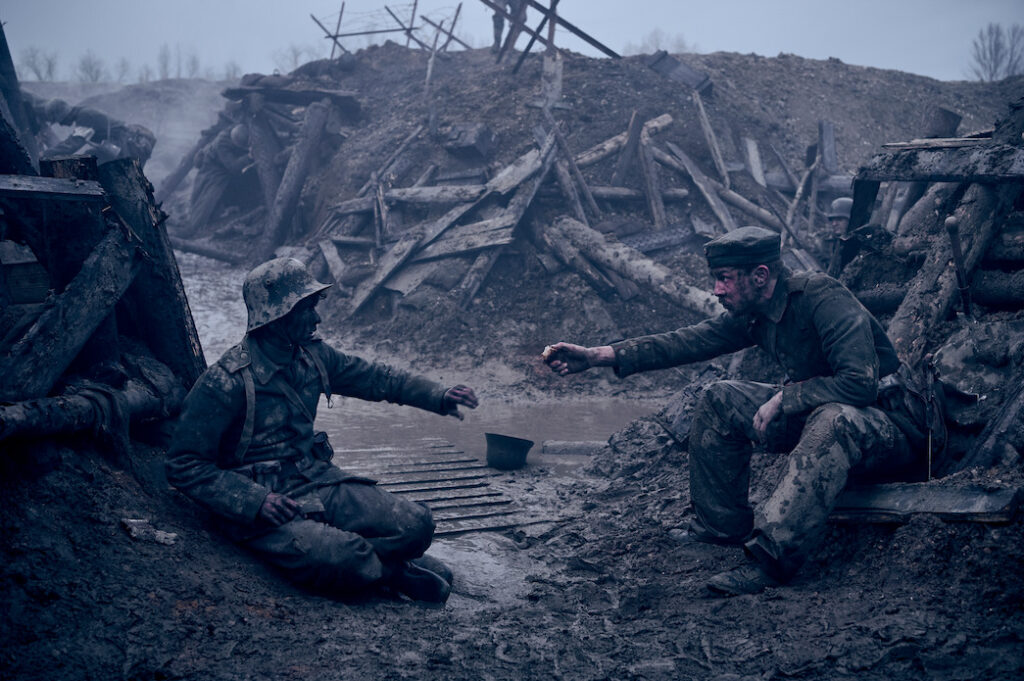
It is that bleakness that beset the titular book as well, which was written by a German WWI veteran Erich Maria Remarque who quite literally was in the trenches. Erich knew the horrors of war, and in his own way perhaps hoped to prevent another lost generation of young men. Watching an adaption in 2022 however just shows how the relevance of this story continues.
Director Berger for his part understands that for today’s audience, where war is often a remote concept, to drive empathy he must showcase the micro moments that exemplify the macro horrors. He does this quite effectively throughout the film, as he did with the uniform scene, and as he does with an early shot showcasing Paul’s horror as he recognizes the spectacles of a friend, lying in the mud. Paul’s horror is personal, and it becomes our horror too. Berger builds on this, showing us the increasing effects of war, as he follows Paul as he searches for a missing company, and though their fates are unclear, we know what to expect – increasing the horror from the individual to the collective.
Berger does not just want to show us the lives and deaths of these soldiers, but he also wants to show the puppeteers holding the strings. To do so he juxtaposes the war in the trenches with a contrasting one, far removed from the front, of the warring armies delegations meeting to discuss an end to the war. Separated from the bloodshed, these are where the decisions are made to save or slaughter millions. The young soldiers lives are in their hands, as these old men fight over a future they may not see, while Paul and his friends try to hold on to a few feet at a time for a cause they no longer understand. Berger does not choose to be showy, nor does he need be, for by simply juxtaposing these through lines together he’s effectively speaking volumes.
These moments exemplify the films greatest strengths. Regrettably though the film’s strengths are not spread evenly. The score by composer Volker Bertelmann distracted from the early scenes in particular more than it complemented what was presented on screen. Likewise the ending, though effective in its own way, is so distinct from the book that it makes the title inspired by the final scene of the original novel almost meaningless. That’s not to say there’s no value to adapting a book in a novel way, and certainly it was an impactful sequence in its own right; however, it just felt like a crucial element dropped from the original novel.
These are comparatively slight concerns when taking in the film as a whole though, which is why it is quite understandable “All Quiet on the Western Front” has developed buzz for Oscar consideration, especially after a series of BAFTA wins and several Academy nods. Whether it’ll win out is yet to be seen, but what will remain, win or lose, is a mesmerizing film of an all too tragic and relevant tale that deserves to be seen.
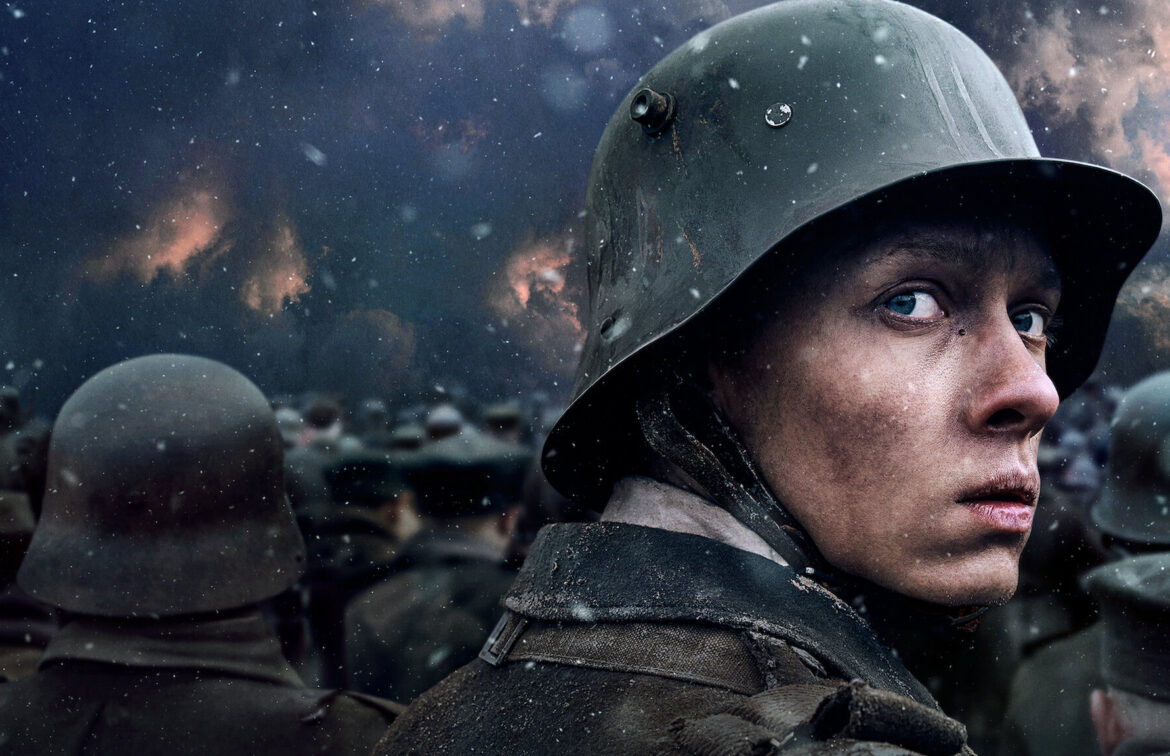
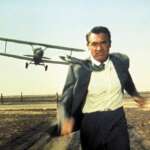
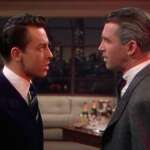

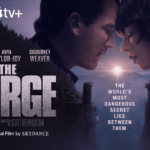

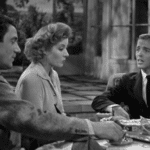



Angie -
Powerful film. The best of the BP nominees, in my opinion.